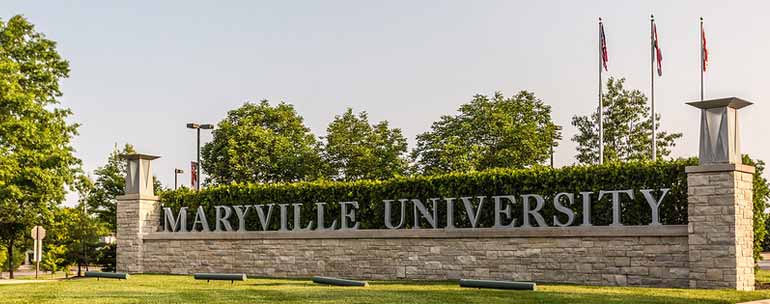Are you ready to apply for online colleges and take your education to the next level?

Going to college online can be a flexible, convenient approach to earning a degree, advancing your career, or expanding your knowledge base.
Editorial Listing ShortCode:
Getting into an online college may feel like an overwhelming challenge at first, but it won’t be as bad if you take it step by step. Arming yourself with knowledge about the process can help you get ready to select colleges and send in your application materials.
Apply for Online Colleges
Online college programs are available at any level. You might start your college studies with a bachelor’s degree or enroll in a graduate or certificate program for further education.
Online Bachelor’s Programs

Whether you have a few college credits already or have never taken a university course, an online bachelor’s program might be a good fit for you. A bachelor’s degree is often known as a 4 year degree, but you may be able to complete yours in less time by choosing an online school.
Editorial Listing ShortCode:
Similar to on-campus programs, there are several types of classes that you may need for an online bachelor’s degree, including:
- Elective courses that address subjects of interest to you
- General education courses that cover a range of topics
- Major courses to prepare you for your career goals
- Specialization courses that focus on one area of your chosen field
Some online colleges require students to log in at set times for live courses, but many others offer prerecorded material that you can access whenever. There may also be online discussions, reading assignments, homework to turn in from afar, and digital simulation labs.
Although the format will be different, the content will be comparable to what you’d learn in an on-campus program. Getting a bachelor’s degree could help you secure an entry-level job in your field. With experience, it may also help you move into management roles.
Online Graduate Programs

Graduate programs include master’s degrees and doctoral degrees. Either type can be pursued through online studies.
Instead of sitting in lecture halls as you would for an on-campus program, the class format might include:
- Discussion boards
- Papers, lab work, or other projects
- Prerecorded video lectures
- Reading assignments
You typically don’t need a slate of general education courses in a master’s or doctoral program though. Instead, all of your studies will likely focus on your chosen subject.
Many graduate programs emphasize research skills too. That may include understanding other’s research and conducting studies of your own. There’s often a major research paper requirement, either a thesis or a dissertation, at the end of a graduate program.
Some programs don’t involve research papers but instead have you sum up your studies through a capstone project. No matter what type of final project you have, it’s usually possible to do it from a distance.
Earning a graduate degree may qualify you for advanced leadership positions. In some fields, it’s also a requirement for professional roles.
Online Certificate Programs

If you’re not ready to commit to an entire degree program, you could enroll in a certificate program instead. Earning a certificate usually requires a concentrated course of study that covers basic skills or a specific topic.
Certificates are available at a variety of academic levels, including:
- Before earning an undergraduate degree
- Between a bachelor’s and graduate program
- After getting a graduate degree
Some certificates may qualify you for entry-level jobs. Others may help you get promotions or pay raises by demonstrating your expertise in a certain area. The credits earned in an accredited certificate program may later be able to transfer into an online degree program.
How to Choose an Online College

Getting an online degree was once a rather rare phenomenon. Today, though, there’s an abundance of online programs available. While it can be good to have choices, you may find yourself struggling to narrow down the selection.
Considering the following characteristics can help you decide the type of online college that is the best for you.
- Regional accreditation: Choosing a school that holds regional accreditation is a sign that you’re going to get a reputable degree. A regionally accredited online degree usually holds more weight with employers and other colleges. In addition to regional accreditation, you may also want to look for programmatic accreditation that’s specific to your field of study if it is available.
- Cost: Some schools are more affordable than others. A school that costs a few hundred dollars less per credit hour could potentially save you thousands in the long run. Financial assistance, like grants and scholarships, can help bring an expensive school within your reach.
- Available degree programs: Not every college offers every field of study, so you may have to search to find a school that offers your desired degree. In addition, you may want to look at specialization options. Honing your studies around a particular aspect of your field may help you achieve your specific career goals.
- Enrollment requirements: If you want to get through school quickly, then you might be in the market for a full-time program. If your availability for studying is limited, then you might prefer to find a school that allows you to spread out your work by choosing part-time enrollment.
- Online format: Some schools require log-ins at set times, and others make materials available 24/7 and allow you to go at your own pace. There are programs that are fully remote, some that require a few on-campus residencies, and some that are a blend of on-campus and distance courses.
- Student support: Attending an online college is different from campus life, so you may want the support of a school that specializes in distance learning. Some colleges provide special online services, such as introductory courses, academic assistance, library resources, and student organizations.
You may value some of these characteristics more than others. Figuring out what’s most important to you can help guide you through the selection process.
Pros and Cons of Online College

For many students, online studies are a great choice with the potential to advance their personal and professional growth. That doesn’t mean that online school is best for everyone. Some students may prefer traditional on-campus programs.
Editorial Listing ShortCode:
Before you apply for colleges online, it can be beneficial to familiarize yourself with the pros and cons of distance learning.
Pros of online degree programs:
- Financial savings: While online schools aren’t always cheaper per credit hour, not paying for room and board can help save you money. Using e-books is often another frugal benefit of online programs.
- Flexible and accessible: If you have a family or a full-time job, you may appreciate being able to access schoolwork whenever and wherever it fits your schedule.
- Personal growth: Success in online school often requires students to buckle down and go for what they want. That may be the catalyst for personal growth and development that extends beyond your academic pursuits.
- Tech know-how: Navigating online platforms and learning how to complete assignments digitally can help equip you with tech skills for today’s workforce.
- Worldwide networking: If you’re intentional about getting to know students and faculty members, you may build connections with people from all around the globe.
Cons of online college classes:
- Feeling alone: Distance learning often doesn’t lend itself to an automatic sense of camaraderie with other students. Without being able to see others’ facial expressions, you may assume that you’re the only one who’s struggling with a particular topic.
- Lack of study spaces: College campuses usually have a wealth of private spaces where you can hide away and study. During online studies, you may have a harder time creating a quiet, interruption-free study zone.
- Organization and self-discipline: Attending an online college requires you to take responsibility for your learning and time management. If you don’t develop effective systems, you may fall behind.
- Time commitment:
In a classroom, much of the communication is spoken. Online courses replace that with reading and typing, both of which may require more time out of your day. - Work-life balance: When schoolwork is always at your fingertips, you may find it hard to take a break. Continually checking in with your classes may put a damper on your relationships.
Analyzing these pros and cons can help you determine whether online studies are the right fit for you.
Admission Requirements for Colleges and Universities

Admissions requirements vary from school to school, but there are some requirements that are often asked for by degree programs.
Typical Undergraduate Admissions Requirements
Your college experience will likely begin with an application process to determine whether you’re prepared for college and a good candidate for the program.
To get into a bachelor’s degree program, your online college application may need to include:
- ACT or SAT scores (if required)
- Completed application form
- High school transcripts
- Personal essay
Requirements vary from one college to the next, so it is beneficial to carefully review all application steps before submitting your materials.
Typical Graduate School Admissions Requirements

Some graduate schools have limited space in their programs, so a strong application may improve your chances of admission.
Graduate applications for colleges online often need to include:
- Completed application form
- GRE or GMAT scores (if required)
- Professional or academic references
- Resume
- Undergraduate college transcripts
Some graduate programs require an interview process as well.
Accreditation
Colleges pursue accreditation to demonstrate that they are trustworthy. When you transfer credits to another school or apply for a job, an accredited degree typically holds more value than an unaccredited one.
Editorial Listing ShortCode:
The U.S. Department of Education oversees accreditors.
Nationally Accredited Online Colleges
National accreditation is given to schools that fall within a particular category. Examples include accreditors for vocational programs, technical training centers, and religious schools. While national accreditation fits the qualifications for receiving federal financial aid, it’s not as widely respected as regional accreditation.
Regionally Accredited Online Colleges

The most rigorous and respected form of accreditation is regional. Agencies that grant regional accreditation consider academics a top priority.
Some colleges hold both regional and national accreditation. For example, a university might have regional accreditation from the Higher Learning Commission and national accreditation from the Distance Education & Training Council.
Cost of Online College

The cost of college varies, but there are few factors that commonly affect cost.
In-State vs. Out-of-State Tuition
At private colleges, students often pay the same rate no matter where they reside. Public colleges often handle this differently.
Since public universities are partially funded by taxes, in-state residents may receive a discount on tuition. This benefit often applies to online students as well as on-campus ones. Out-of-state students sometimes qualify for savings. For example, some online state colleges offer in-state tuition rates to all students.
Online vs. On Campus Cost

It’s possible that you’ll save money by going to school online, but that’s not always a guarantee. When comparing online vs traditional college, online colleges often cost less per credit hour than private institutions with traditional campuses.
On the other hand, online tuition may be comparable to or more expensive than many public universities. Keep in mind, though, that going to school online can save you a bundle on housing expenses. Logging in online might also be cheaper than commuting to campus.
How to Pay for Online College

Finding universities with no application fees is just one step to a low-cost education. You may need to secure financial assistance as well.
The Free Application for Federal Student Aid (FAFSA) is the first step toward learning about your eligibility for government assistance. Your student aid may come in the form of state and federal grants or loans.
Scholarships may help fund your schooling too. These are often awarded based on merit. Fellowships are similar to scholarships but may cover extra educational expenses. You may be able to get scholarships and fellowships through your college or an outside organization.
Some employers contribute toward college expenses. You may have the most luck with this approach if your education will directly benefit the company.
Can College Application Fees Be Waived?

Yes, there are colleges with free applications for students who can demonstrate financial need. Others offer no-cost applications for people who have served in the military.
Editorial Listing ShortCode:
There may be steps you can take to earn a fee waiver. For example, some institutions give this benefit as a reward for touring their campus. At other schools, simply submitting a digital application instead of a paper one might be enough to qualify you.
Other Fees That Can Be Waived
In addition to looking for colleges with no application fee, you can also see about getting a fee waiver for the CSS Profile. You may need this form to apply for various scholarships.
Some schools require SAT scores for undergraduate admissions or GRE scores for graduate admissions. You may qualify to take the SAT for free or sign up for the GRE at a reduced rate.
Some colleges even cover the cost of campus visits, such as transportation and housing, for qualified students.
How Do I Sign Up for Online College?

Keep the college enrollment process manageable by taking it step by step.
Here’s how it might go for you:
- Submit applications, preferably to schools with no application fee.
- After receiving confirmation that you’ve been accepted, make your final decision about where to attend.
- Complete the registration process, and make your first tuition payment.
- Check whether you need to upgrade your computer, peripherals, or software.
- Consult the course catalog to check the schedule for the current term, and sign up for classes.
You may contact an admissions counselor or academic advisor if you need help at any point in this process.
Do Online Colleges Accept Anyone?

Some of the most reputable online colleges have very stringent admissions policies and accept only a fraction of the students who apply. Just like with many on-campus programs, good grades and other impressive characteristics can help increase your chances of getting into such schools.
Other online programs accept anyone who meets all of their admissions requirements, such as having a high school diploma. Community colleges and for-profit schools are examples of institutions that often have this sort of admissions policy.
How Much Are College Application Fees?

The cost of applying to college can vary greatly from school to school. There are some accredited top online colleges without application fees that never charge for reviewing applications.
Most schools do levy a fee though. On average, the application cost typically ranges from $40 to $60. Some colleges charge more, of course. Application fees of $75 aren’t unheard of, and there are even schools with fees that are $100 or more.
If college application fees seem out of your reach, you can inquire about your eligibility for a fee waiver.
Is It Common for Schools to Offer No Application Fees?

No, application fees are pretty standard in the world of higher education. The money helps schools pay for the manual labor involved in processing applications. Fees may also deter uncommitted people from sending in applications that they don’t intend to follow through.
Editorial Listing ShortCode:
Of course, there are some schools with no application fees. That can make the admissions process more equitable or encourage more people to apply. Also, students facing financial hardships may qualify for fee waivers.
What Is an Open Admissions Policy?
Colleges with open admissions policies accept all students who meet the minimum requirements. For example, any applicant with a high school diploma or a GED might be granted a spot.
You may find open admissions opportunities at most community colleges and some state universities. This is different from colleges with rolling admissions. Having a rolling admissions policy means that a college evaluates applications as they arrive and accepts students throughout the year.
How Credible Are Online Degrees?

As long as you choose an accredited institution, your online degree may be just as respected as one that was earned on campus. As more and more people are studying digitally, online degrees have become increasingly mainstream. Plus, some employers appreciate the value that the online environment brings to students’ studies.
To many, completing a distance degree is a sign that someone possesses self-discipline, organization, and a keen understanding of technology. Those characteristics are valued in the workforce. Also, your diploma probably won’t indicate that your degree came through online studying. Future employers may never know how you earned your degree.
Is an Online Degree Worth it?

Yes, an online degree is worth it for many students. Through online studying, you may be able to accomplish your goal of increasing your education or becoming a college graduate.
Online programs can also help you learn how to navigate digital platforms, which is a skill with real-world applications. College classes can help improve your employability and bring greater job security as well. According to the Bureau of Labor Statistics, unemployment rates go down as education levels go up.
Editorial Listing ShortCode:
The unemployment rate is 3.7% for high-school graduates but 2.2% for people with bachelor’s degrees. For those with doctorates, the rate is only 1.1%.
Online Colleges Without an Application Fee for Admission
Methodology: The following school list is in alphabetical order. To be included, a college or university must be regionally accredited and offer degree programs online or in a hybrid format and don’t have an application fee on their admission.

American Public University System allows applicants to apply online for any degree. The application typically takes up to 15 minutes to complete.
After all admission documents have been submitted, applicants are contacted by an admissions representative for a follow-up. No admissions fee is required unless applicants are applying for a doctoral degree.
APUS is accredited by the Higher Learning Commission.

Brescia University’s applicants may apply online without an application fee.
The school has different application processes and forms for applicants depending on whether they are first-time freshmen, non-traditional students, transfer students, or online students. Applicants who are still in high school must submit official high school transcripts and either ACT or SAT scores.
Brescia University is accredited by the Southern Association of Colleges and Schools Commission on Colleges.

Chadron State College allows applicants to apply online for free. Official transcripts and either ACT or SAT scores must be submitted when applying. Applicants that have not studied at a post-secondary institution must also complete a placement test. Applicants with 12 or more college credits may apply as transfer students.
Chadron State College is accredited by the Higher Learning Commission.

Colorado Technical University offers an online application that can typically be completed in 15 minutes.
The school offers open admission, meaning there are no test score or GPA requirements. A meeting with an admissions advisor can be held on campus or through a phone call. Proof of high school diploma or an equivalent must be submitted when applying.
Colorado Technical University is accredited by the Higher Learning Commission.

Dallas Baptist University allows applicants to apply online for free. High school transcripts with GPA and graduation date and any transcripts from post-secondary institutions attended must be submitted. ACT, SAT, or CLT scores must be submitted to receive a merit-based scholarship.
Dallas Baptist University is accredited by the Southern Association of Colleges and Schools Commission on Colleges.

Grand Canyon University has online classes starting every week, which allows year-round admission. Applicants can apply online for free. Within 24 hours of the school receiving official transcripts from previously attended schools, Grand Canyon University sends applicants estimated costs, start dates, and graduation dates.
Grand Canyon University is accredited by the Higher Learning Commission.

Indiana Wesleyan University offers rolling admission, which allows applicants to be accepted into a program at any time.
Official transcripts from either high school or previously attended post-secondary institutions must be submitted when applying. Though no additional test scores are required, applicants must have a GPA of 2.6 or higher. Admission decisions are typically made within 3 weeks.
Indiana Wesleyan University is accredited by The Higher Learning Commission.

Johnson and Wales University allows students to apply online for free. High school transcripts must be submitted when applying.
If a student is interested in transferring credits from a previously attended institution, college or university transcripts must also be submitted. While not required, additional test scores can be submitted to bolster applications.
JWU is accredited by the New England Commission of Higher Education.

LeTourneau University offers free, online applications for on-campus, online and graduate, dual credit, and international students. ACT, SAT, or CLT scores are not required but may be submitted when applying. Applicants must submit official high school transcripts and have a GPA of 3.0 or higher.
LeTourneau University is accredited by the Southern Association of Colleges and Schools Commission on Colleges.

Lindsey Wilson College allows applicants to submit an application online or by mail. Applicants must submit high school transcripts and official test scores when applying. Though not required, applicants may also submit additional documents, such as a resume, with their application.
Lindsey Wilson College is accredited by the Southern Association of Colleges and Schools Commission on Colleges.

Loyola University—Chicago accepts applications online through the Common App and the Coalition for College Success Application. High school transcripts, a letter of recommendation, SAT or ACT scores, and either a co-curricular activities form or a resume must be submitted when applying.
Loyola University Chicago is accredited by the Higher Learning Commission.

Maryville University offers an online admission process for those interested in on-campus or online programs.
Applicants should have a GPA of 2.5 or higher but may still be considered if they do not meet the requirement. Transcripts from high school and any other post-secondary institutions that have been attended must be submitted. SAT or ACT scores may be submitted as well but are not required.
Maryville University is accredited by the Higher Learning Commission.

McKendree University offers applications online through their website, the Common App, and submitted physical copies. No application fee is required when applying on their site. SAT or ACT scores and a letter of recommendation can be submitted and an interview can be completed but are not required to be considered.
McKendree University is accredited by the Higher Learning Commission.

Michigan Technological University allows prospective undergraduate students to apply online for free. Official high school transcripts and SAT or ACT scores must be submitted to the school. Letters of recommendation, resumes, and other supplementary documents may also be submitted but are not required.
Michigan Tech is accredited by The Higher Learning Commission.

Norwich University allows prospective students to apply through the Common App or their own online application form.
High school transcripts must be submitted to the program. To be eligible for admission, applicants must have 4 years of math and English. Applicants may also choose to submit a resume, admission essay, letters of recommendation, or SAT scores.
Norwich University is accredited by the New England Commission of Higher Education.

Point Park University allows interested applicants to apply online using either the Common App or the Pioneering Spirit Application. The online application is free and can be completed at any time because the school offers rolling admission. The application to the school also covers the application to scholarships.
Point Park University is accredited by the Middle States Commission on Higher Education.

Southern New Hampshire University allows prospective students to apply online. Admissions counselors are available to help applicants through the application process.
Transcripts from previously attended post-secondary institutions and from high school must be submitted. No application fees are required for prospective undergraduate or online graduate students who live in the United States.
Southern New Hampshire University is accredited by the New England Commission of Higher Education.

The University of Dayton offers three ways to submit an application: using the UD Application, the Common App, or the Coalition App. The application process to the school is completely free. An admission essay and official high school transcripts must be submitted when applying. ACT or SAT scores may also be submitted but are not required.
The University of Dayton is accredited by the Higher Learning Commission.

The University of Scranton allows interested students to apply for free through the Common Application. Applicants must have a GPA of 3.4 or higher.
Either SAT or ACT scores must be submitted to the school, with the SAT scores taking the best math and reading scores. Letters of recommendation and a list of extracurricular activities can also be submitted but are not required.
The University of Scranton is accredited by The Middle States Commission on Higher Education.

The University of St. Francis accepts applications through the Common App or the school’s online form. High school transcripts and SAT or ACT scores must be submitted with the application. To be eligible for the school, applicants must either have a GPA of 2.5 or higher or submit an admissions essay.
The University of St. Francis is accredited by the Higher Learning Commission.
Applying for Online Colleges

Getting more education doesn’t have to be just a dream. Many turn this ambition into a reality with online college classes.
There are many online programs that provide flexible ways to earn degrees around busy schedules. Getting into college usually starts with the application process. There are several steps involved, but you can take them one at a time.
To make things even easier, look for colleges that will let you apply online. Accredited schools that don’t charge application fees are beneficial as well. So, if you are ready to apply for online colleges and take your education to the next level, you can start looking for college courses online today.

